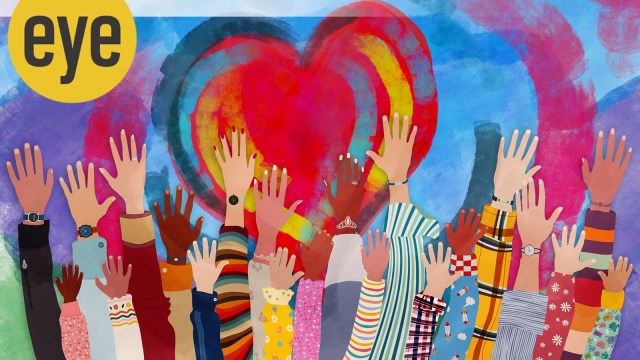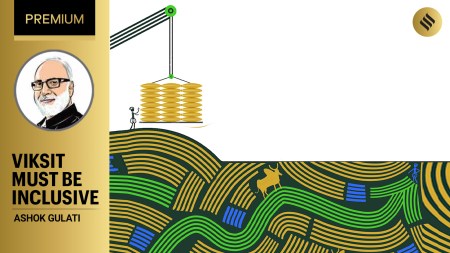- India
- International
Neurodiversity at work
As we celebrate Autism Acceptance Month, let’s commit to making our workspaces inclusive and safe and where we work with neurodivergent minds rather than against them
 Respecting diversity means making sure we acknowledge people despite their differences (Credit: Getty Images)
Respecting diversity means making sure we acknowledge people despite their differences (Credit: Getty Images)Ronny had Attention Deficit Hyperactivity Disorder (ADHD) which made him struggle with time management and organisational skills demands at school and college, as these spaces are inevitably designed for neurotypical learning. When he started working in a PR agency, he was excited to start afresh as he had always heard that he had great “people skills” and the job profile promised a fair bit of travel, which he loved. However, what he was not ready for was the way his workspace did not give any space for his neurodivergence. As he explained, “I was required to sit on my chair all the time, answering endless emails, keeping up with the slack messages, and by the end of it seemed I was chasing my tail round and round.” If that was not bad enough, there were constant derogatory remarks being thrown at him for tardiness, which immobilised him even further. Most folks with neurodivergence grow up with humiliation and as Ronny put it, “with a sense of disappointing everyone around them like square pegs being pushed into round slots.” He tried to numb the despair by partying late or playing video games endlessly, which impacted the work situation further until the time he was “burnt-out, charred and shredded of my dignity.”
Sara identified as autistic and “neuroqueer” and got into a computer engineering company after college. However, what she was not ready for was the huge number of meetings she had to attend every day, the open workspace where everyone was constantly talking and interacting with each other. She loved the work but the social aspect of her job left her exhausted. “Every day I return depleted as if I have come back from a war zone,” she said. She started falling sick repeatedly and it became so bad that she had to leave her job with the conclusion, “I am just not suitable for work, there is something wrong with me.”
Historically, psychiatry has pathologised, medicalised neurodivergence as a checklist of deficits, delays and dysfunctions that children with ADHD, autism and learning disabilities might be living with. A majority still impose this practice and yet there are some who have taken a step ahead and have become part of the neurodiversity movement who do not see neurodivergence as a disorder to be fixed but a different way of being and living in this world. Some schools and colleges across the world have adopted various innovative pedagogies and seen their children thrive. Similarly, parents who have driven the movement have been strong advocates for making homes and public spaces safe for all and not just the neuromajority. But what do we do when these young people grow up, become adults and start working? The prevalence indicates that in a workspace of 50 people, there would be around two to three people with ADHD and at least one with autism. So we have many Ronnies and Saras navigating their way in an unaccommodating neurotypical world, carrying the burden of failure when actually, it is the world that has failed at keeping them safe.
Neurodiversity, social justice and human rights
Each person deserves to live a life of dignity and respect. When it comes to neurodivergent folks, there is always an assumption and expectation that they face from their childhood, that only if they tried hard enough or pushed themselves a little more, they could become like everyone else i.e. neurotypical. It pushes pressure on them to mask or what is now being termed adaptive morphing, as a survival skill, in the face of a threatening world. However, it can be crippling as all their energy goes into pretending to fit in a neuronormative world. It can lead to mental health challenges like depression and anxiety. There is nothing wrong with Ronny or Sara, as it is their human right that they are understood and acknowledged for who they are rather than who they are expected to be. The biggest problem with the notions of neuronormativity is that it propagates that there is one “normal” kind of mind which ends up stigmatising anything that is atypical. We have to question this — who does it serve, who benefits from it and who does it privilege? On the other hand, who does it rob of dignity, who gets invisibilised? The question is what steps can we take in our workspaces to make it more neurodiverse safe?
Acknowledgement — Respecting diversity means making sure people are acknowledged despite their differences. Where Ronny’s innovative ideas and knack for connecting to people are valued and he is allowed to play to his strengths rather than constantly harassed for struggling with time management. Where Sara is able to seek solitude to work on her creative projects without guilt or fear of being judged or discriminated against for not being social. Where people can talk openly about their neurodivergence without shame or being dismissed as being “weird”. In our organisation, we practise “neurodivergence pride” and our motto is, “Each person is wired and inspired differently” while still maintaining rigour and quality of our services.

Accountability — We are all humans, and we all mess up at work from time to time. How can we bring in and let others bring their best selves to work? How can we practise expansive accountability? Systemic injustice is endemic for people who have faced oppression like those who live with disability or neurodivergence, queer folks, women and so on. How can we weave in expansive accountability so that whenever anyone messes up, we can have conversations upholding the respect and dignity of the person and invite agency? Similarly, what processes can be put into place, just like Vishakha guidelines and PoSH in organisations, so that there can be redressal against harassment?
Allyship — There might be little scepticism at neurodivergence as “mollycoddling” young people and as a “new age fad.” Neurodivergence has always been there but not recognised and these were the people who were dismissed as “lazy”, “can’t stick to a job”, “irresponsible”, and “untrustworthy” until we lost them to addictions, internalised shame, or suicide. Ronny and Sara have both opted to work in smaller set-ups that align with their values. I asked them if they had any messages for young people with neurodivergence. Sara said, “You would have to be your own advocate, fight your battles for diversity, but do not take the world’s nonsense personally.” And Ronny’s words were, “Look for joy in what you do, support each other and find your allies.”
In April, as we celebrate Autism Acceptance Month, let’s commit to making our workspaces inclusive and safe and where we work with neurodivergent minds rather than against them.
Shelja Sen is a narrative and family therapist, writer, co-founder of Children First. In this column she curates the know-how of the children and youth she has the honour of working with. Email her at shelja.sen@childrenfirstindia.com
Apr 04: Latest News
- 01
- 02
- 03
- 04
- 05








































